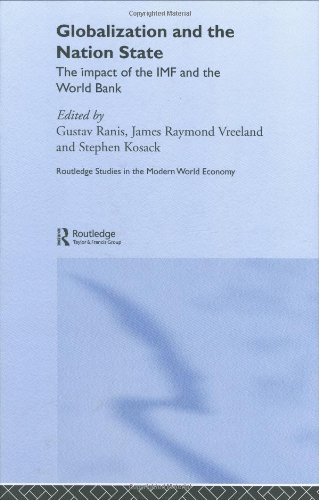

Most ebook files are in PDF format, so you can easily read them using various software such as Foxit Reader or directly on the Google Chrome browser.
Some ebook files are released by publishers in other formats such as .awz, .mobi, .epub, .fb2, etc. You may need to install specific software to read these formats on mobile/PC, such as Calibre.
Please read the tutorial at this link: https://ebookbell.com/faq
We offer FREE conversion to the popular formats you request; however, this may take some time. Therefore, right after payment, please email us, and we will try to provide the service as quickly as possible.
For some exceptional file formats or broken links (if any), please refrain from opening any disputes. Instead, email us first, and we will try to assist within a maximum of 6 hours.
EbookBell Team

5.0
110 reviews
ISBN 13: 9780415700863
Author: Stephen Kosack, Gustav Ranis, James Vreeland
This book brings together an international team of contributors to assess the political economy of the IMF and World Bank programmes. The cutting-edge techniques of the new political economy are thus brought to bear on international issues for the first time. The book includes contributions from leading North American economists - Stephen Coate, Stephen Morris, Ravi Kanbur and Allen Drazen - as well as European-based analysts including Graham Bird and Frances Stewart.
Part I Whither Conditionality?
1 Who’s in Charge? Ownership and Conditionality in IMF-Supported Programs
2 Policy Conditionality
3 Conditionality and Ownership in IMF Lending
A Political Economy Approach
4 Empirical Implications of Endogenous IMF Conditionality
Part II The International and Domestic Politics of IFI Programs
5 The High Politics of IMF Lending
6 Money Talks
Supplementary Financiers and IMF Conditionality
7 The World Bank and the Reconstruction of the ‘Social Safety Net’ in Russia and Eastern Europe
8 When the World Bank Says Yes
Determinants of Structural Adjustment Lending
9 The Demand for IMF Assistance
What Factors Influence the Decision to Turn to the Fund?
10 The Survival of Political Leaders and IMF Programs
11 Do PRSPs Empower Poor Countries and Disempower the World Bank, or is it the Other Way Round?
Part III Possible Reforms of the IFIs
12 Macroeconomic Adjustment in IMF-Supported Programs
Projections and Reality
13 The IMF and Capital Account Crises
The Case for Separate Lender of Last Resort and Conditionality Functions
14 Should the IMF Discontinue its Long-Term Lending Role in Developing Countries?
15 IFIs and IPGs
Operational Implications for the World Bank
16 Ownership, Dutch Disease and the World Bank
Part IV Reflections on the International Infrastructure
17 Why it Matters who Runs the IMF and the World Bank
18 Do as I Say Not as I Do
A Critique of G-7 Proposals on “Reforming” the MDBs
what is the relationship between globalization and the nation state
education globalization and the nation state
global politics globalization and the nation state
globalization and the nation state robert j holton
globalization and the nation state pdf
Tags: Stephen Kosack, Gustav Ranis, James Vreeland, GLOBALIZATION, NATION